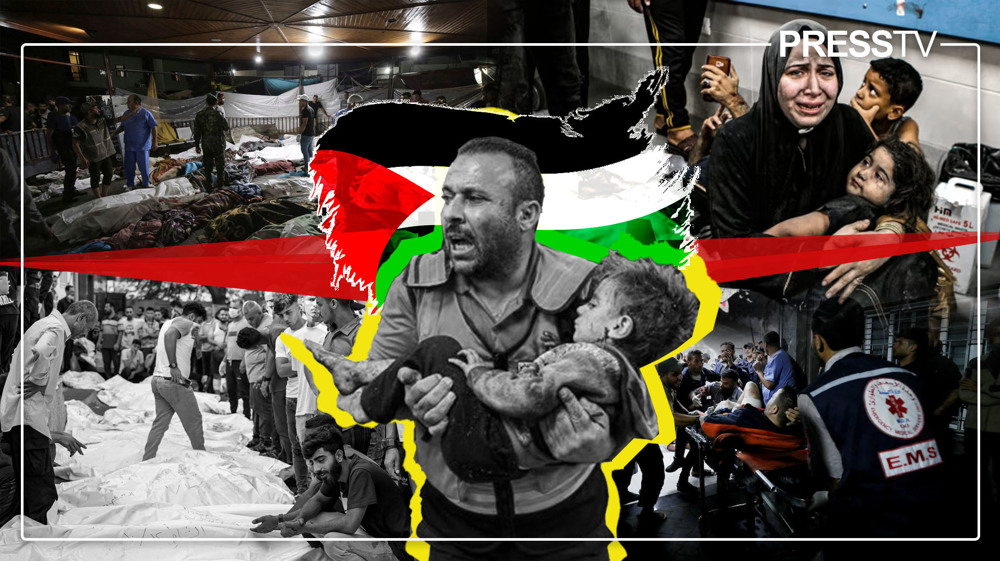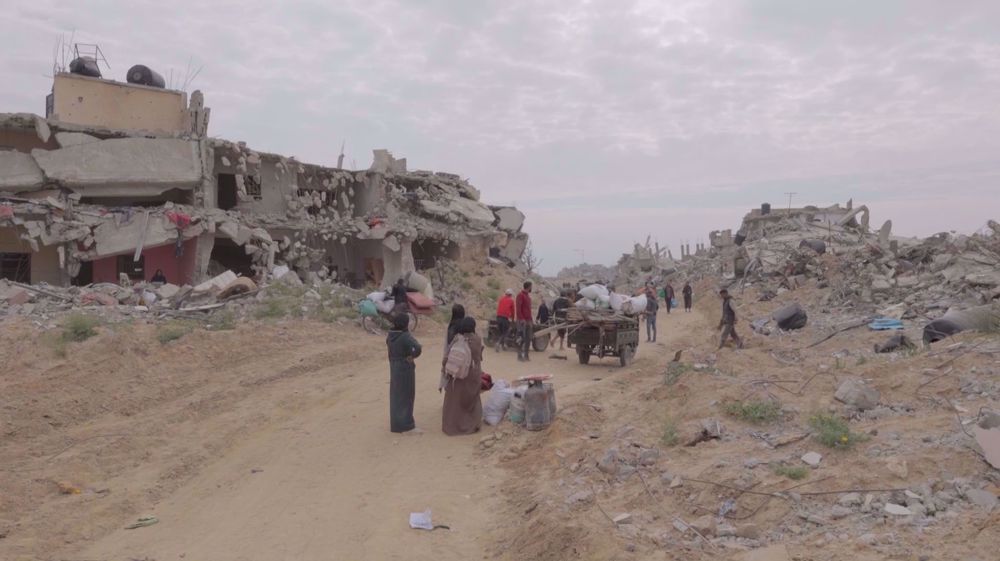Fractured Ummah: How leadership crisis, disunity undermined the Palestinian cause
By Zainab Zakariyah
The Islamic world, once a beacon of unity and resistance against colonialism, now stands fractured and weakened. This fragmentation is the result of decades of internal failures and cunning ploys by external powers to create fissures in the fabric of the Ummah.
Propaganda, sectarianism, and the prioritization of narrow national interests have eroded the collective strength of the Arab and Muslim world. At the heart of this disunity lies the failure to rally around the Palestinian cause, a seventy-year-old struggle that remains a litmus test for Arab and Muslim solidarity.
This failure has not only emboldened Israel’s settler-colonial expansionist ambitions but also exposed the vulnerabilities of the Arab world to external manipulation and internal division.
To better understand the current state of the Arab world, we must revisit the early 20th century, a time when Arab nations fought valiantly against colonial powers.
From the Arab Revolt of 1916 against the Ottoman Empire to the resistance against French and British mandates in Syria, Iraq, and Palestine, the Arab world was united in its quest for independence and self-determination. The shared identity of Muslims, Christians, and Jews as "People of the Book" fostered a sense of brotherhood that transcended religious or ethnic differences.
However, the late 19th and early 20th centuries saw a shift. The oppressive policies of the Ottoman Empire, coupled with British meddling and the aftermath of World War I, led Arab intellectuals to embrace European-inspired nationalism.
Leaders like Gamal Abdel Nasser of Egypt and Habib Bourguiba of Tunisia emerged as champions of Pan-Arabism. Yet, over time, Arab nationalism, instead of fostering solidarity, has deepened divisions and given rise to ethnocentric and individualist approaches.
Leaving the region to become a patchwork of competing nation-states, each prioritizing its own interests over the collective good. This fragmentation was exploited by colonial powers, which saw an opportunity to feed on the carcass of a broken Ummah, redrew maps and sowed discord to maintain control over the resource-rich West Asia.
One could argue that perhaps the Arab nationalistic shift could have lasted the test of time, but the creation of the illegitimate Israeli regime in 1948 marked a definitive turning point.
"I ask you now: do not stop speaking about Gaza. Do not let the world look away. Keep fighting, keep telling our stories—until Palestine is free."
— Press TV 🔻 (@PressTV) March 26, 2025
Hossam Shabat
Martyred Palestinian journalist pic.twitter.com/Ya5UwcVSnw
The Nakba, which marked the expulsion of over 700,000 Palestinians from their homes and the subsequent occupation of Palestinian lands, exposed the limitations of Arab nationalism. Despite initial solidarity, Arab nations failed to translate their rhetoric into effective action.
The 1967 Six-Day War with Israel dealt a devastating blow to the Arab nationalistic aspirations, with the regime occupying the West Bank, Gaza, East Jerusalem, the Golan Heights, and the Sinai Peninsula. The US-led Camp David Accords of 1978, which saw Egypt sign a deal with the occupying regime,e dealt the final blow, further shattering the illusion of Arab unity.
These developments revealed the inability of Arab leaders to prioritize collective action over individual interests. The wave of normalization agreements in recent years between some Arab states and the Israeli regime, a blatant betrayal of the Palestinian cause, further emboldened Israel’s expansionist ideas and threatened the future of many Arab countries.
Nationalism, once a rallying cry for liberation, has proven inadequate in addressing the challenges facing the Arab world. While it is clear that the Arab nationalistic ideals have failed, the question remains: What other solution is there?
It’s time Arabs and Muslims, in general, return to their source of power and embrace their Islamic identity. According to recent data, there are at least 2 billion Muslims in the world, with that number steadily increasing.
This means a united Ummah could wield unparalleled geopolitical, economic, and moral influence.
The collective strength of 2 billion Muslims, spanning diverse nations and cultures, is a force that no single power or alliance could easily ignore. From military power to economic leverage, to providing a more humane, justice-oriented way of life, a stark contrast to the materialistic, profit-oriented Western doctrine that has dragged the entire world to a near catastrophic environmental disaster.
The opportunity and potential are too enormous to list.
The question then is, what are the challenges preventing this unity from materializing? We cannot find answers without examining the role of propaganda and sectarianism. Western powers and their allies have skillfully exploited sectarian divides to keep the Arab world fragmented.
By framing regional conflicts as ancient religious feuds, they have diverted attention from their own geopolitical ambitions. For example, the US invasion of Iraq in 2003 exacerbated sectarian tensions, leading to the rise of the Daesh terrorist group.
Quds Day is commemorated on the last Friday of Ramadan, a day of international solidarity with the Palestinian people.
— Press TV 🔻 (@PressTV) March 27, 2025
Introduced by Ayatollah Khomeini in 1979, it's named after the Arabic word for the capital of Palestine. pic.twitter.com/IDNobShLZ7
Instead of addressing the root causes of extremism, Western governments used Al Qaeda and Daesh as a pretext to target Shia groups and governments in the region while using propaganda to convince many Sunni Arabs to view Iran and Hezbollah as enemies rather than allies.
The brutality of terrorist outfits such as Daesh did not discriminate when it came to killing Shias, Sunnis, Christians and other minority groups. And it was Shia-led groups that stood, fought, protected and liberated lands otherwise occupied by these extremist groups. The Iraqi Popular Mobilization Forces, while mainly Shias, played a crucial role in liberating cities like Mosul and Tikrit. In Syria, Hezbollah, Iranian and Syrian resistance forces were instrumental in breaking the siege of Aleppo.
And yet, today, many Arabs and Sunni Muslims view Iran and other Shia resistance groups in the same lens as Israel, with many believing that Shias are worse than the Israeli occupation. Even though since the Al Aqsa storm operation, while many Arab countries have been paralyzed, it was Hezbollah, Yemen, Iraqi resistance forces, and Iran that have given everything, including their blood, to support Palestinians.
What then is the way forward? The Ummah will remain in a perpetual state of war and endless conflict if it fails to discard these sectarian narratives and mindsets. It must hold to account those who fund and propagate extremism and acknowledge the contributions of all groups in the fight against terrorism.
It must also renew its commitment to the Palestinian cause, not as a symbolic issue but as a central pillar of Arab, Islamic identity and solidarity. This also includes holding Israel accountable for its actions.
Arab leaders must recognize that Israel’s expansionist policies pose a direct threat to their own security, and normalization agreements, far from bringing peace, will only further render their countries weakened and another easy pick for Israel’s expansionist ambitions, just as we are witnessing in Syria.
The European Union shows that unity is possible, even among nations with a history of conflict. If the Islamic Ummah can overcome its divisions and unite, it will not only secure the liberation of Palestine but also restore its dignity and reclaim its place as a global leader in justice and human rights.
The time has come for Muslims to rise above their differences and harness the immense power of a united Ummah. Palestine and, indeed, the entire world cannot wait any longer.
Zainab Zakariyah is a Tehran-based writer and journalist, originally from Nigeria.
(The views expressed in this article do not necessarily reflect those of Press TV.)
Israeli keeps killing more Palestinian civilians in Gaza amid relentless ceasefire violations
Aliyev: Azerbaijani territory will not be used for threats against Iran
Turkey arrests two on charges of spying for Israeli regime
Iran FM declares ‘good start’ as US–Iran talks conclude in Muscat
Iran strongly condemns 'terrorist' mosque blast in Islamabad
Iran enters talks backed by national power, popular support: MP
France, UK involved in assassination of Muammar Gaddafi's son: Reports
Shia mosque explosion in Islamabad kills more than 30, injures over 160















 This makes it easy to access the Press TV website
This makes it easy to access the Press TV website